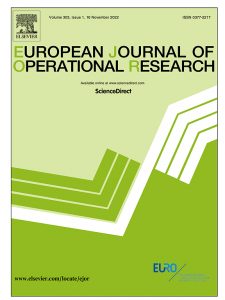Online voluntary mentoring:
Optimising the assignment of students and mentors
Highlights
- Application of allocating voluntary mentors to students for online mentoring in Hungary during the COVID-lockdowns
- Optimal solutions with a MILP model based on personal characteristics, social priorities, and preferences
- Special features are the possibility of mentoring in pairs and groups, batch matching runs
- Computer simulations for generated data to evaluate the performance of dynamic allocations under various settings and objectives
Abstract
After the closure of the schools in Hungary from March 2020 due to the pandemic, many students were left at home with no or not enough parental help for studying, and in the meantime some people had more free time and willingness to help others in need during the lockdown. In this paper we describe the optimisation aspects of a joint NGO project for allocating voluntary mentors to students using a web-based coordination mechanism.  The goal of the project has been to form optimal pairs and study groups by taking into account the preferences and the constraints of the participants. In this paper, we present the optimisation concept and the integer programming techniques used for solving the allocation problems. Furthermore, we conducted computational simulations on real and generated data to evaluate the performance of this dynamic matching scheme under different parameter settings.
The goal of the project has been to form optimal pairs and study groups by taking into account the preferences and the constraints of the participants. In this paper, we present the optimisation concept and the integer programming techniques used for solving the allocation problems. Furthermore, we conducted computational simulations on real and generated data to evaluate the performance of this dynamic matching scheme under different parameter settings.
Keywords: Assignment, Resource allocation, Matching under preferences, Integer programming, Computational simulation



